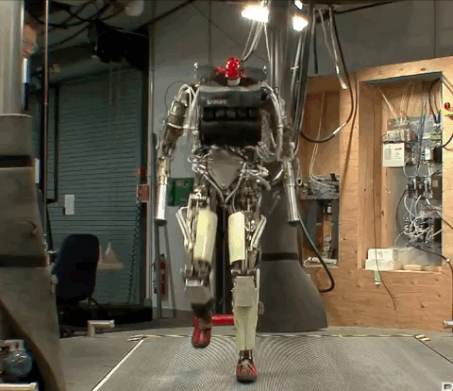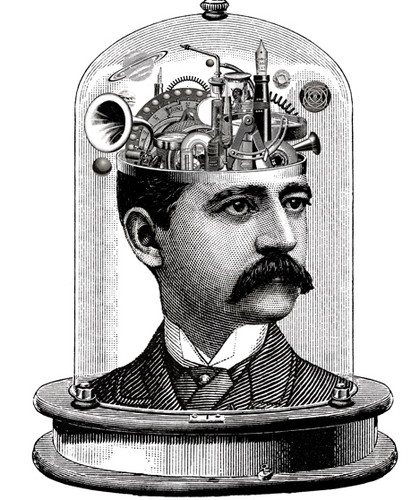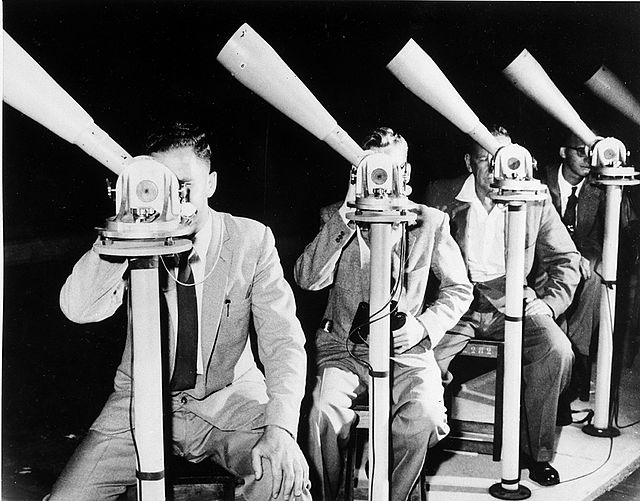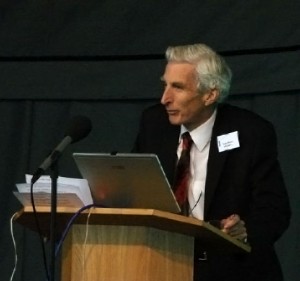In a great, wide-ranging Edge piece, Martin Rees meditates on everything from the Big Bang to a potential post-human age in space, when genetic modification and cyborgism could make for a comfortable life in what are currently severely inclement conditions. We will live beyond Earth, but it won’t really be us.
“I’m optimistic that within ten years or so, we will have an understanding of how life began on the Earth,” he writes, which will enable us to understand how likely life is on the billions of planets in our galaxy. The astronomer argues that any life in the inhospitable environs of outer space has probably already successfully transitioned into that of conscious machines, and that earthlings will have to master something similar to get anyone beyond the “crazy pioneers” to purchase a one-way ticket to Mars.
The shrinking of technological hardware makes it most sensible for us, certainly for now and likely in the long run, to send space probes with smart machines rather than half-mad humans, though I don’t doubt some of the latter will make their way out there.
From Rees:
Even though the rate of progress is uncertain, the direction of travel is pretty well agreed. It’s almost certainly going to be towards a posthuman world, where our intelligences would be surpassed by something genetically engineered from us or, more likely, it will be some sort of artificial electronic device that has robotic abilities and intelligence.
Some people say that will happen within a century, others say it will happen within a few hundred years. Even if it takes a few hundred years, that is a tiny instant compared to the past history of the Earth. More importantly, it’s a tiny instant compared to a long-range future. There are billions of years ahead for our solar system, and maybe even more for the universe.
If you imagine a time chart for what’s happened on the Earth, there’s been 4 billion years where there’s been no manifestation of any technology. Then, a few millennia of gradually expanding technology generated by human beings. After that, maybe there will be billions of years more when the dominant technology, the dominant non-natural things, will be entirely inorganic. That means the following: If we were to detect some other planet on which life had taken a course similar to what happened here on Earth, it’s unlikely that its development there would be sufficiently synchronized with development here that we would catch it in those few millennia in which we’ve got technology that is controlled by organic beings like us. If it’s lagging behind what’s happened on Earth, then we’ll see no evidence for anything artificial.
On the other hand, if it’s ahead, then what we will detect—if we detect any evidence that that civilization existed—will be something mechanical, machines. Those machines maybe will not be on the planet because they may not want gravity, they may not want water, et cetera. They may be in space. If the Yuri Milner program detects anything, then it’s likely to be some artifact created by some long-dead civilization. It’s unlikely that there would be any coded message intended for us, but it might be something we could clearly see was not something that emerged naturally. That in itself would be very exciting.
To expand on what’s going to happen here on Earth that might lead to this takeover by posthumans in some form leads to another fascinating topic: the future of manned spaceflight. …
I don’t think Elon Musk is realistic when he imagines sending people a hundred at a time for normal life because Mars is going to be far less clement than living at the South Pole, and not many people want to do that. I don’t think there will be many ordinary people who want to go, but there will be some crazy pioneers who will want to go, even if they have one-way tickets.
The reason that’s important is the following: Here on Earth, I suspect that we are going to want to regulate the application of genetic modification and cyborg techniques on grounds of ethics and prudence. This links with another topic I want to come to later about the risks of new technology. If we imagine these people living as pioneers on Mars, they are out of range of any terrestrial regulation. Moreover, they’ve got a far higher incentive to modify themselves or their descendants to adapt to this very alien and hostile environment.
They will use all the techniques of genetic modification, cyborg techniques, maybe even linking or downloading themselves into machines, which, fifty years from now, will be far more powerful than they are today. The posthuman era is probably not going to start here on Earth; it will be spearheaded by these communities on Mars.•








